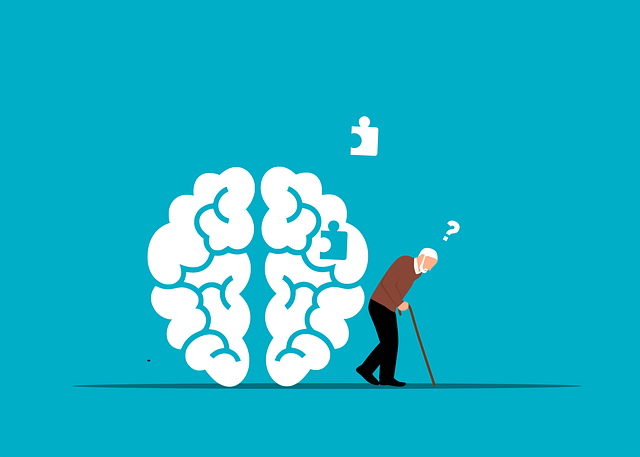Emotional Intelligence (EI) is a powerful tool in modern workplace therapy, particularly through Aurora Workplace Issues and Job Stress Therapy, which helps individuals manage stress, improve relationships, and promote mental health. By focusing on self-awareness, management, social awareness, and relationship skills, EI training enhances communication, resolves conflicts, and fosters positive work environments. Integrating mental health education into training sessions and collaborating with experts like Aurora can significantly reduce job stress levels and boost productivity. Aurora Workplace Issues and Job Stress Therapy offers structured programs to develop crucial social skills and emotional awareness, encouraging open dialogue and a culture of resilience.
Emotional intelligence (EQ) is a powerful tool for navigating complex workplace dynamics, especially in high-stress environments. This article delves into the core concepts of EQ, exploring its significant impact on workplace stress levels. We examine how Aurora workplace issues and job stress can be addressed through strategic EQ building initiatives. Additionally, we discuss therapy as a valuable resource, offering insights into managing workplace challenges by prioritizing employee mental well-being. By understanding these aspects, organizations can foster healthier, more productive work environments.
- Understanding Emotional Intelligence: The Core Concepts
- Aurora Workplace Dynamics and the Impact on Stress Levels
- Strategies for Building Emotional Intelligence in the Office Environment
- Therapy as a Tool: Addressing Workplace Issues with Emphasis on Job Stress
Understanding Emotional Intelligence: The Core Concepts

Emotional intelligence (EI) is a complex yet powerful concept that has garnered significant attention in recent years, especially within the realm of Aurora Workplace Issues and Job Stress Therapy. At its core, EI involves recognizing, understanding, and managing one’s own emotions while also recognizing, interpreting, and influencing the emotions of others. This intricate dance of emotional awareness and regulation is what enables individuals to navigate complex interpersonal relationships, foster positive mental health awareness, and effectively manage stress in both personal and professional settings.
The development of EI involves several key components, including self-awareness, self-management, social awareness, relationship management, and a commitment to continuous self-improvement. By cultivating these skills, individuals can enhance their self-esteem improvement, improve communication, build stronger connections with colleagues, and create a more harmonious work environment. Aurora Workplace Issues and Job Stress Therapy often leverages techniques like mindfulness, empathy, and active listening to help individuals develop and refine their emotional intelligence, ultimately fostering a culture of mental health awareness and resilience within organizations.
Aurora Workplace Dynamics and the Impact on Stress Levels

In today’s fast-paced work environments, Aurora workplace dynamics play a significant role in shaping employees’ stress levels. The intricate web of relationships and interactions among colleagues can either foster a supportive atmosphere or contribute to heightened tension. When workplace issues such as conflicts, misunderstandings, or toxic behaviors go unaddressed, they can take a toll on mental health, leading to chronic job stress. This is where Emotional Intelligence (EI) steps in as a powerful tool for mitigation.
Understanding the interconnection between Aurora Workplace Issues and Job Stress Therapy is essential. EI training equips individuals with the mind over matter principles needed to navigate complex social situations and resolve conflicts constructively. By fostering emotional healing processes, employees can transform their responses to stressful events, thereby reducing the impact of workplace dynamics on their mental well-being. This proactive approach not only enhances overall job satisfaction but also contributes to a more positive and productive work environment.
Strategies for Building Emotional Intelligence in the Office Environment

Building emotional intelligence (EI) in the office environment is a multifaceted process that can significantly enhance workplace dynamics and overall productivity. One effective strategy involves incorporating mental health education programs into the design of training sessions. These programs not only equip employees with tools to manage their moods but also foster an open dialogue about stress, anxiety, and other common work-related issues, such as those addressed by Aurora Workplace Issues and Job Stress Therapy.
Moreover, community outreach program implementation can play a pivotal role in promoting EI development. By engaging with external experts or organizations focused on mental health, companies can organize workshops, webinars, or awareness campaigns that highlight the importance of recognizing and managing emotions. This approach helps create a supportive work culture where colleagues encourage each other to prioritize mental well-being, ultimately leading to improved collaboration and reduced stress levels.
Therapy as a Tool: Addressing Workplace Issues with Emphasis on Job Stress

In today’s fast-paced work environment, Aurora Workplace Issues and Job Stress Therapy has emerged as a powerful tool for fostering mental wellness. The focus on emotional intelligence building is not just a trend but a necessary strategy to enhance employee satisfaction and productivity. By addressing workplace issues head-on, organizations can implement effective stress reduction methods tailored to their unique challenges. This approach recognizes that job stress is a complex beast, often stemming from various sources such as heavy workloads, poor communication, or a lack of social skills training.
Therapy sessions provide a safe space for employees to navigate these complexities. Through structured programs, professionals can help individuals develop crucial social skills and emotional awareness. These sessions not only offer coping strategies for managing stress but also encourage open dialogue, fostering an environment where workers feel heard and valued. This proactive approach to Aurora Workplace Issues is a game-changer, promoting a culture of resilience and overall well-being.
Emotional intelligence is a powerful tool for navigating the complexities of the modern workplace. By understanding core concepts, recognizing the impact of dynamics like those seen in the Aurora Workplace on stress levels, and employing strategic techniques, individuals can significantly enhance their emotional intelligence. Furthermore, therapy plays a crucial role in addressing specific workplace issues, especially regarding job stress. Incorporating these practices not only fosters healthier office environments but also contributes to improved individual well-being and professional success.














